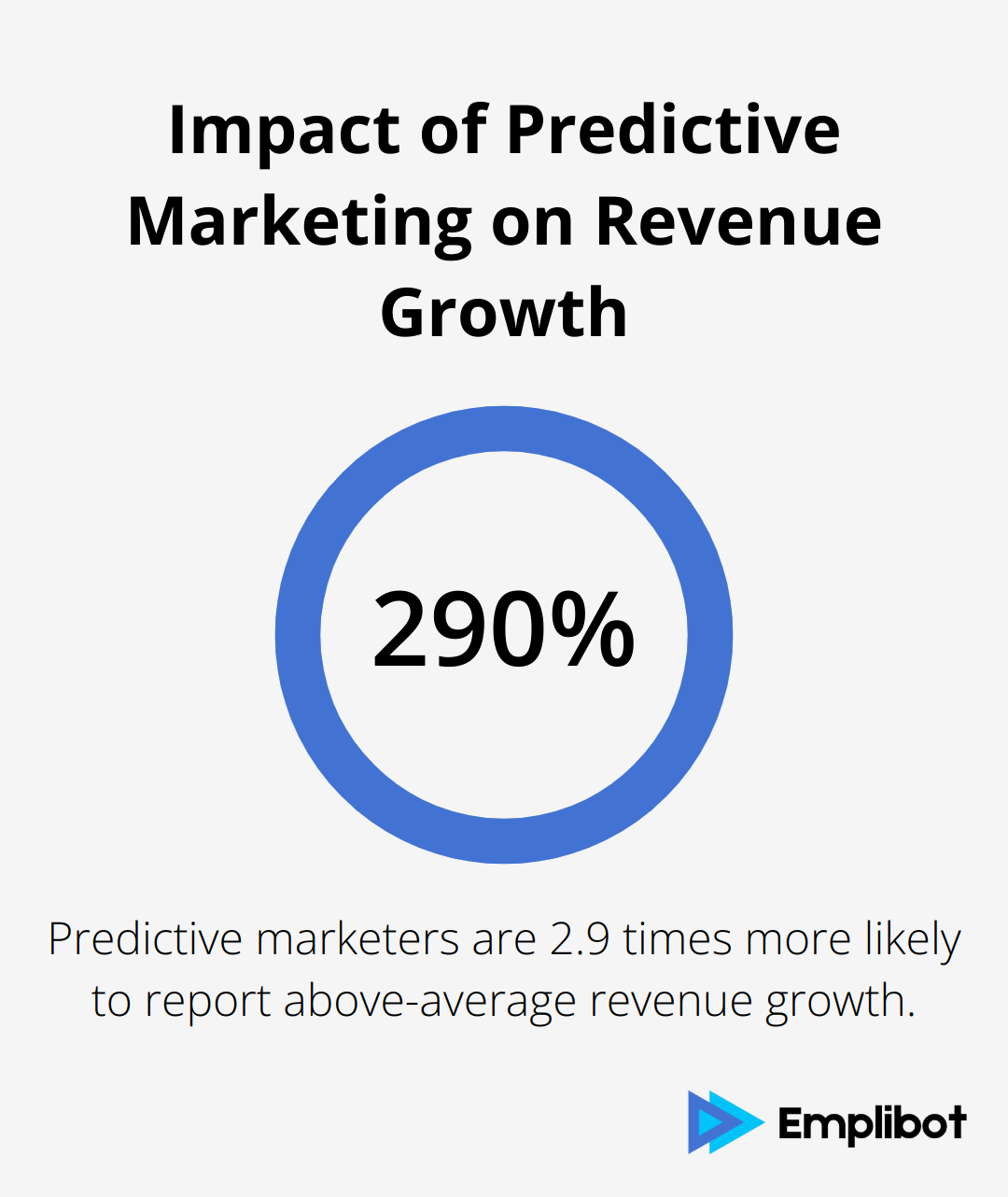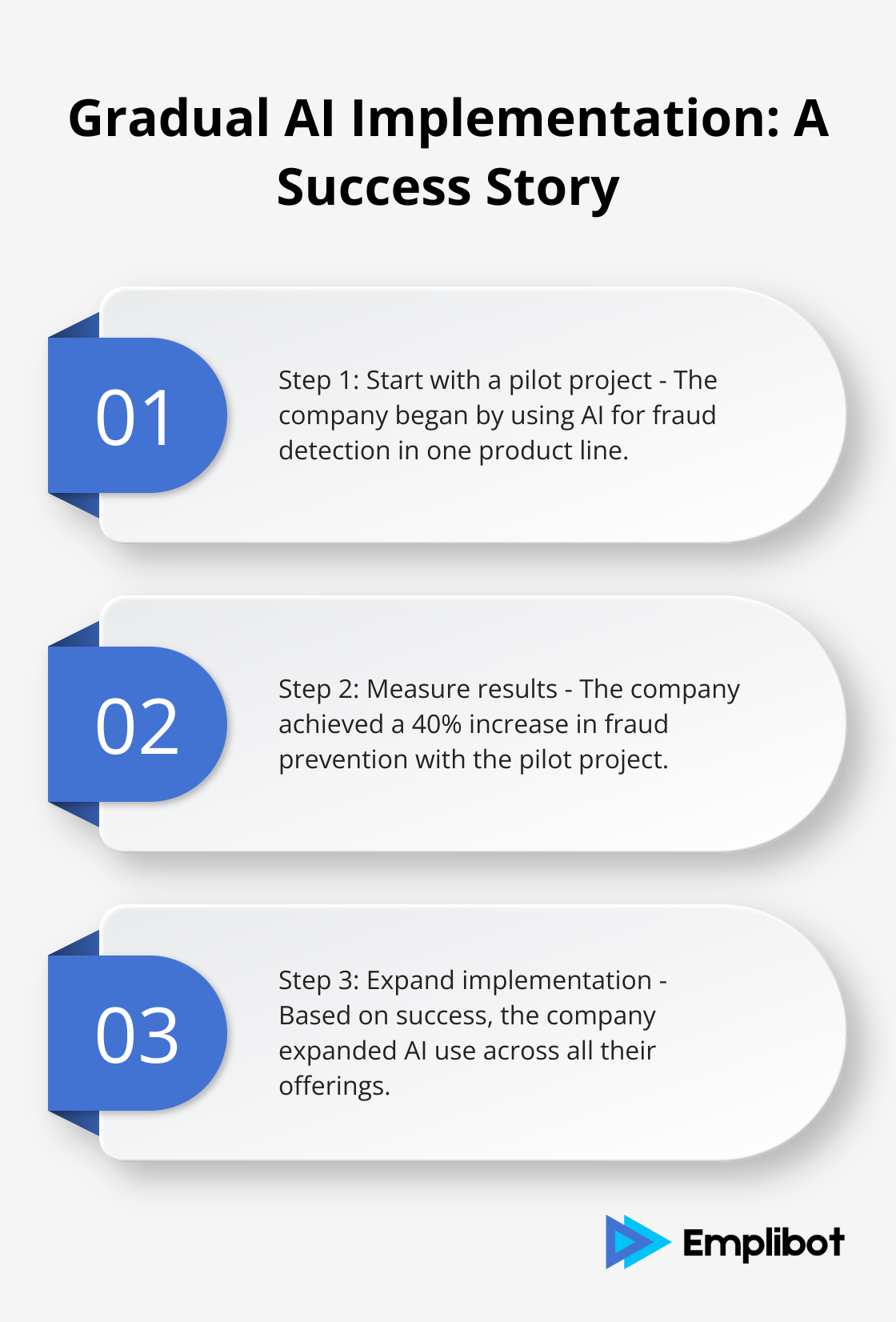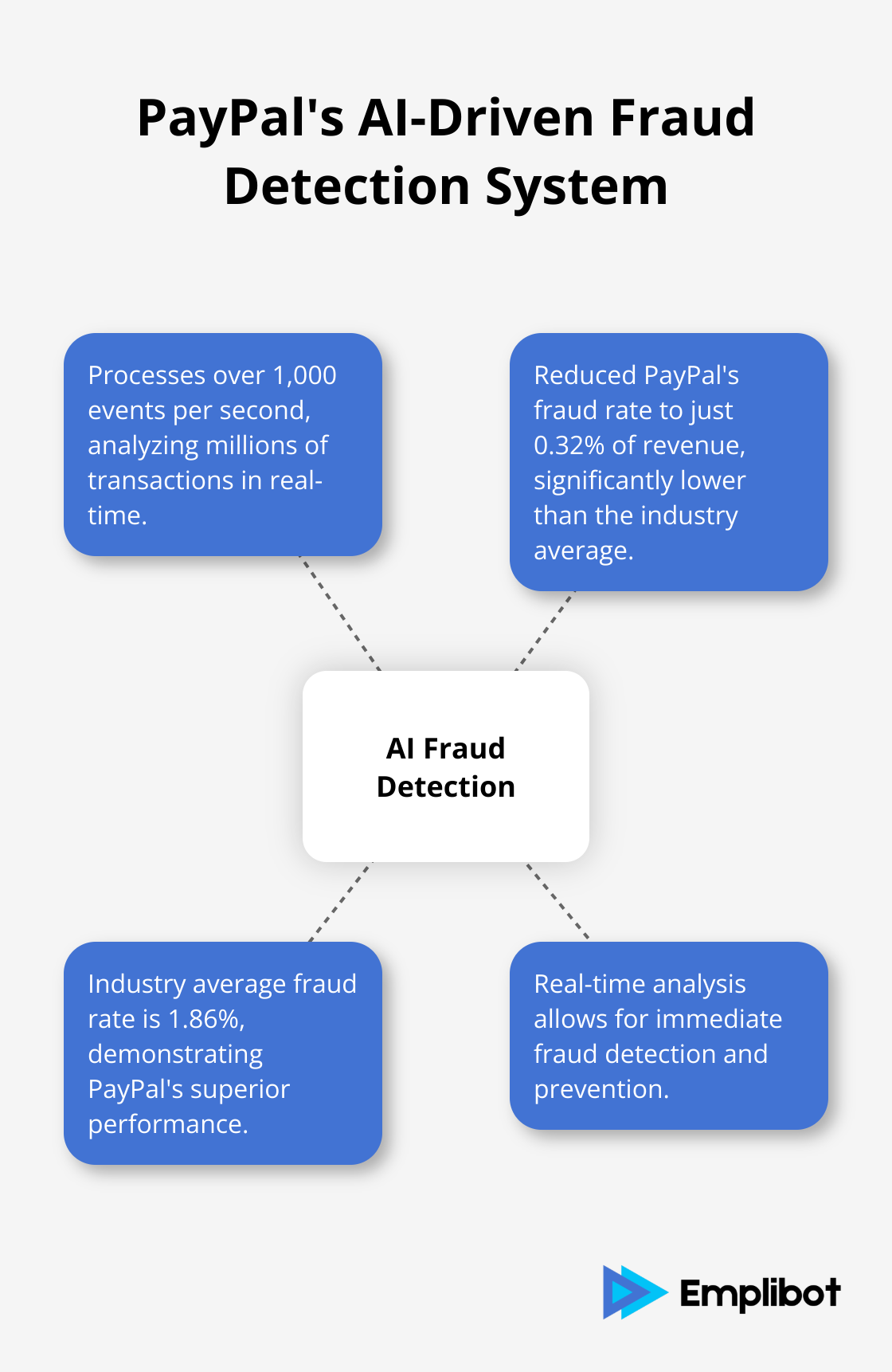At Emplibot, we’ve seen firsthand how AI is revolutionizing business analytics. The fusion of artificial intelligence and data analysis is creating unprecedented opportunities for companies to gain insights and make smarter decisions.
Business analytics and AI are no longer just buzzwords – they’re essential tools for staying competitive in today’s fast-paced market. In this post, we’ll explore how you can harness the power of AI to transform your analytics processes and drive real business value.
What is AI in Business Analytics?
AI in business analytics transforms how companies process data and make decisions. This powerful technology uses advanced algorithms and machine learning to analyze vast amounts of information, uncover patterns, and generate actionable insights. AI surpasses traditional data analysis methods, enabling businesses to make more informed decisions and predict future trends with greater accuracy.
The Power of Predictive Analytics
Predictive analytics stands out as one of the most impactful applications of AI in business analytics. Predictive marketers are 2.9x more likely to report revenue growth at rates higher than the industry average. This tool forecasts future outcomes based on historical data, helping businesses anticipate market changes, customer behavior, and potential risks.

Enhancing Customer Insights
AI-powered analytics tools excel at processing and interpreting customer data. They analyze customer interactions across multiple touchpoints (social media, customer service logs, purchase history). This comprehensive view allows businesses to create highly personalized experiences. By delivering personalized experiences, businesses can foster enhanced customer loyalty and satisfaction, ultimately leading to increased revenue.
Streamlining Operations with AI
AI in business analytics optimizes internal processes as well as customer understanding. Machine learning algorithms identify inefficiencies in supply chains, production processes, and resource allocation. Amazon exemplifies this by using AI to optimize its warehouse operations, reducing processing time by 225% and saving millions in operational costs.
Overcoming Implementation Challenges
While the benefits of AI in business analytics are clear, implementation can be challenging. It requires a strategic approach, the right tools, and a data-driven culture. Many businesses struggle with these challenges, which is why platforms like Emplibot have emerged to make AI-powered content creation and distribution accessible to businesses of all sizes.
The integration of AI in business analytics will become increasingly important for maintaining a competitive edge. The next section will explore the practical steps for implementing AI in your business analytics processes, equipping you with the knowledge to leverage this powerful technology effectively.
How to Implement AI in Your Business Analytics
AI implementation in business analytics requires a strategic approach. This chapter outlines key steps to integrate AI effectively into your analytics processes.
Define Clear Objectives
Set specific goals for your AI implementation. Do you want to improve customer retention? Optimize your supply chain? Reduce operational costs? Your objectives will shape your AI strategy and provide benchmarks for success.
A retail company aimed to reduce inventory waste. They used AI to analyze sales patterns, seasonal trends, and external factors (like weather). This analysis led to a 15% reduction in overstock within six months.
Prepare High-Quality Data
AI systems rely on clean, organized data for accurate analysis. Audit your current data sources, identify gaps and inconsistencies, and implement data governance policies to maintain data quality.
A manufacturing company invested three months in data cleaning and standardization before AI implementation. This upfront effort resulted in 30% more accurate demand forecasts.
Select Appropriate Tools
The AI tool market offers numerous options. Focus on solutions that align with your specific needs and integrate well with your existing systems. Consider factors such as scalability, user-friendliness, and vendor support.
For content creation and distribution, Emplibot stands out as a top choice. It automates the entire process from keyword research to content creation and social media distribution.
Create a Data-Driven Culture
Successful AI implementation requires buy-in from your entire team. Provide training to help staff understand AI’s benefits and capabilities. Encourage data-driven decision-making across your organization.
Data-driven decision-making with AI is significant for businesses. It offers numerous benefits and can be implemented effectively through practical steps.
Implement Gradually
Start with a pilot project in a specific department or for a particular process. This approach allows you to test, learn, and adjust before expanding AI across the entire organization.
A financial services company started by using AI for fraud detection in one product line. After achieving a 40% increase in fraud prevention, they expanded AI use across all their offerings.

AI implementation in business analytics transforms how companies process data and make decisions. The next chapter explores real-world applications of AI in business analytics, showcasing how these technologies drive tangible results across various industries.
AI in Action: Real-World Business Analytics Success Stories
Retail Revolution: Predictive Analytics Transforms Inventory Management
A major US retailer optimized its inventory management with AI-powered predictive analytics. The company analyzed historical sales data, seasonal trends, and external factors (like weather patterns). This analysis reduced overstock and increased profit margins within the first year of implementation.
This success story showcases the potential of AI in accurate demand forecasting. Businesses can apply similar strategies to streamline their supply chains, minimize waste, and improve cash flow.
Personalization Perfected: Netflix’s AI-Driven Recommendations
Netflix’s recommendation system exemplifies AI-driven personalization. The platform analyzes viewing habits, search history, and even the time of day users watch. Netflix’s AI algorithms create highly personalized content recommendations. This approach increased viewer engagement by 75% and significantly reduced customer churn.
Small businesses can also harness AI for personalization. AI tools can analyze customer data to create tailored content and marketing messages, which boost engagement and conversion rates.
Efficiency Unleashed: UPS Optimizes Routes with AI
UPS’s ORION (On-Road Integrated Optimization and Navigation) system demonstrates AI’s role in process optimization. This AI-powered route optimization tool analyzes over 250 million address points daily. The results are impressive: UPS saves up to $400 million annually and has cut 100 million miles from its routes (significantly reducing fuel consumption and emissions).
AI tools can optimize various processes in businesses of all sizes. Companies can streamline production schedules and automate customer service responses to drive efficiency across their organizations.
Fraud Fighter: PayPal’s AI-Driven Risk Management
PayPal’s AI-driven fraud detection system processes over 1,000 events per second, analyzing millions of transactions in real-time. This system reduced PayPal’s fraud rate to just 0.32% of revenue, far below the industry average of 1.86%.

Smaller businesses can also benefit from AI in risk management. AI algorithms flag unusual patterns in financial transactions, identify potential security breaches, and predict market risks before they materialize.
AI-Powered Content Creation: Emplibot’s Automated Solution
In the realm of content marketing, Emplibot stands out as a top choice for businesses. This AI-powered platform automates the entire process from keyword research to content creation and social media distribution. Emplibot produces high-quality, engaging content tailored to each business, saving time and resources while increasing traffic, leads, and sales.
Final Thoughts
The integration of AI in business analytics has transformed data processing, decision-making, and competitive strategies across industries. Companies now use AI-powered analytics for predictive insights, personalized customer experiences, process optimization, and risk management. As AI technology advances, we anticipate more sophisticated and accessible analytics tools, including natural language processing and edge computing capabilities.
Businesses that want to leverage AI in their analytics processes should start with clear objectives and high-quality data. Selecting appropriate tools and fostering a data-driven culture are essential steps in this transformative journey. Emplibot offers an efficient solution for content marketing efforts, automating the process from keyword research to content creation and distribution.
The synergy between business analytics and AI continues to reshape industries and drive innovation. Companies that embrace these technologies will unlock valuable insights, improve decision-making, and maintain a competitive edge in the data-driven landscape. Those who act now to harness the power of AI in their analytics processes will position themselves for success in the future of business.

